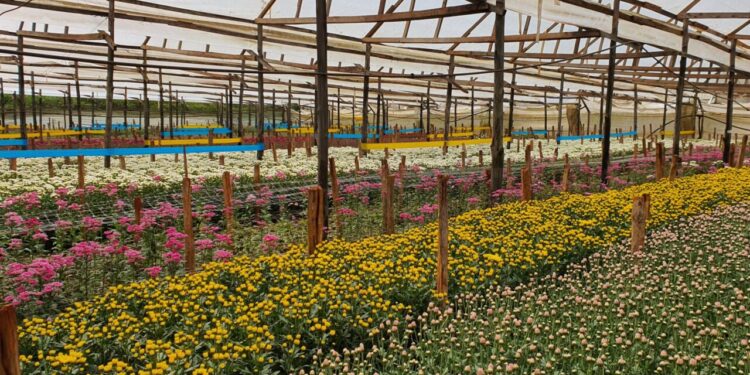Kenya, a global leader in the floriculture industry, has taken decisive steps to safeguard its multi-billion-shilling flower export sector by ensuring full compliance with the European Union’s (EU) stringent phytosanitary regulations. The government’s commitment to eradicating the False Codling Moth (FCM) and achieving 100% regulatory compliance underscores the industry’s resilience, securing both immediate and long-term economic benefits for the country.
The Ministry of Agriculture and Livestock Development, under the leadership of Cabinet Secretary Mutahi Kagwe, has declared a zero-tolerance policy on FCM, implementing robust measures to prevent export disruptions. At the core of these efforts is the adoption of the Systems Approach, an EU-endorsed regulatory framework designed to eliminate the pest at every stage of the production process.
A major milestone in this compliance drive has been the submission of Kenya’s FCM Systems Approach Protocol to the EU, backed by extensive scientific evidence from production sites. The registration of 134 approved flower farms, each assigned a unique traceability code, enhances transparency and accountability across the supply chain. Furthermore, the government has ramped up training efforts, equipping 849 industry personnel and 475 agro-attendants with specialized skills in pest management.
The Pest Control Products Board (PCPB) has also facilitated the registration of specialized pesticides targeting FCM, reinforcing Kenya’s commitment to ensuring zero pest detection in its exports. These measures are critical in mitigating the risks associated with the EU’s Regulation 2004/2024, set to take effect on April 26, 2025, which mandates stricter compliance for fresh-cut rose exports.
The flower industry remains a vital pillar of Kenya’s economy, contributing significantly to export earnings and employment. In 2024 alone, Kenya exported 102,475.8 tonnes of flowers valued at Sh72.1 billion, accounting for 53% of total horticultural export revenue. However, non-compliance in previous years resulted in 95 shipment rejections and 48 interceptions, leading to losses estimated at €1.05 million.
By addressing these challenges proactively, the government is not only securing Kenya’s dominant position in the global flower market but also strengthening investor confidence. The swift action taken by regulatory agencies, including the Kenya Plant Health Inspectorate Service (KEPHIS), Kenya Agricultural & Livestock Research Organization (KALRO), and the Agriculture and Food Authority (AFA), ensures that Kenya remains a trusted supplier of high-quality flowers to the EU and other global markets.
Achieving full compliance with EU regulations presents several long-term advantages for Kenya’s floriculture industry:
1. Market Stability and Expansion – By meeting EU standards, Kenya secures its access to a key market, reducing the risk of trade restrictions and positioning itself for expansion into other high-value markets such as Asia and North America.
2. Improved Production Standards – The Systems Approach fosters a culture of excellence in flower production, leading to higher quality exports that command premium prices.
3. Strengthened Global Competitiveness – By proactively addressing phytosanitary concerns, Kenya enhances its reputation as a reliable and sustainable supplier, giving it a competitive edge over emerging floriculture markets.
4. Job Security and Economic Growth – The flower industry supports hundreds of thousands of jobs, from farm workers to logistics professionals. Ensuring compliance safeguards livelihoods and sustains economic growth, particularly in rural areas where floriculture is a major employer.
5. Sustainable Agricultural Practices – The focus on pest management and compliance fosters environmentally friendly practices, reducing reliance on harmful pesticides and promoting ecological sustainability in flower farming.
A Bright Future for Kenya’s Flower Industry
With just weeks left before the new EU regulations take effect, Kenya’s rapid response demonstrates its dedication to preserving and enhancing the country’s floriculture sector. The measures in place not only address immediate compliance needs but also set the stage for long-term industry resilience and growth.
By embracing innovation, strict regulatory adherence, and sustainability, Kenya is well-positioned to maintain its status as a leading global exporter of premium-quality flowers, ensuring prosperity for farmers, exporters, and the national economy for years to come.
Kenya’s foreign exchange reserves have climbed to a historic high of nearly $10.59 billion, according to the latest financial markets bulletin released by the Central Bank of Kenya...
Read moreDetails









